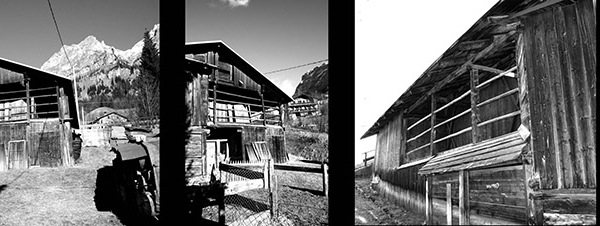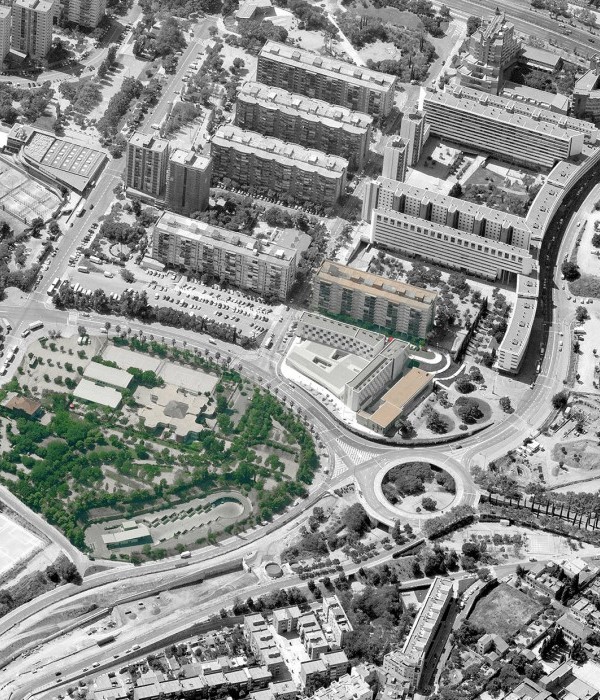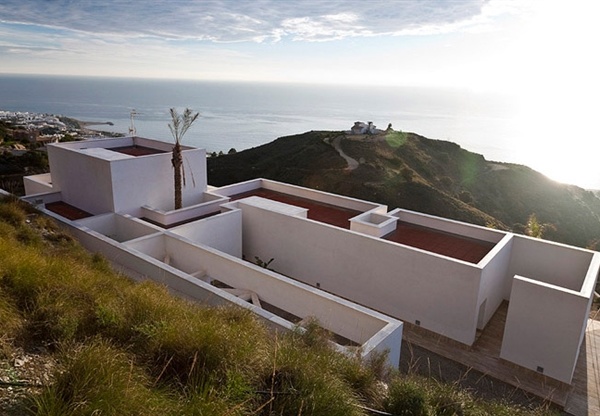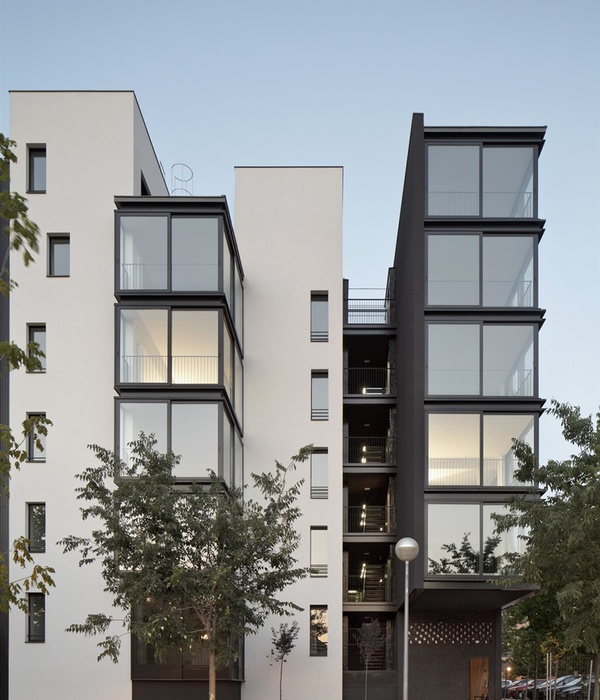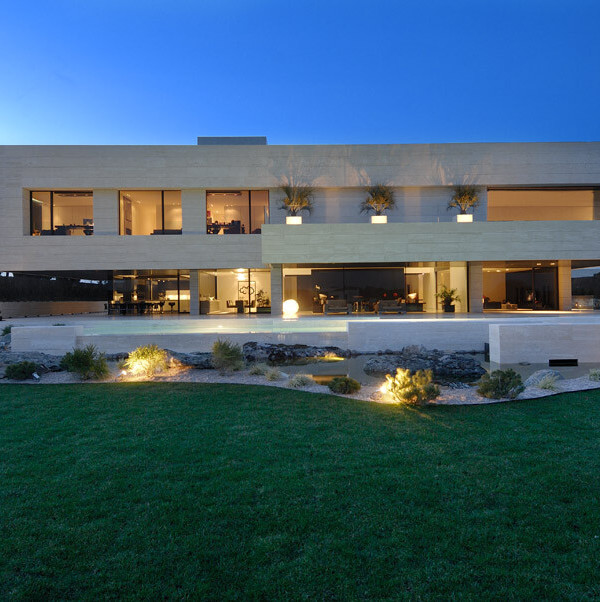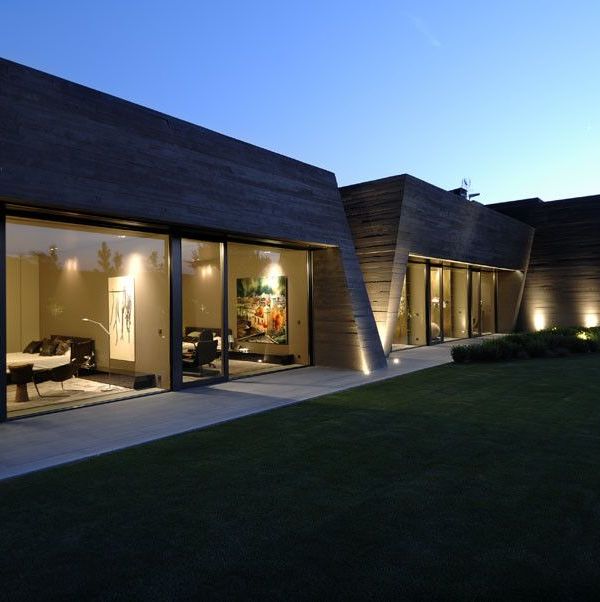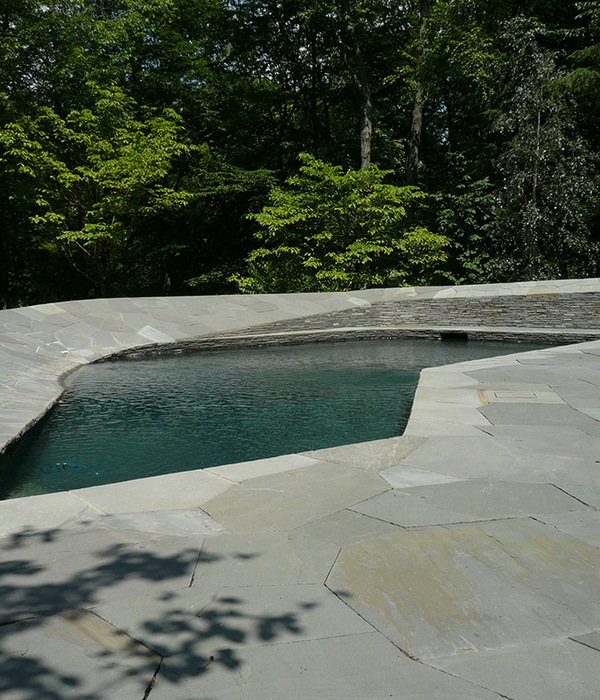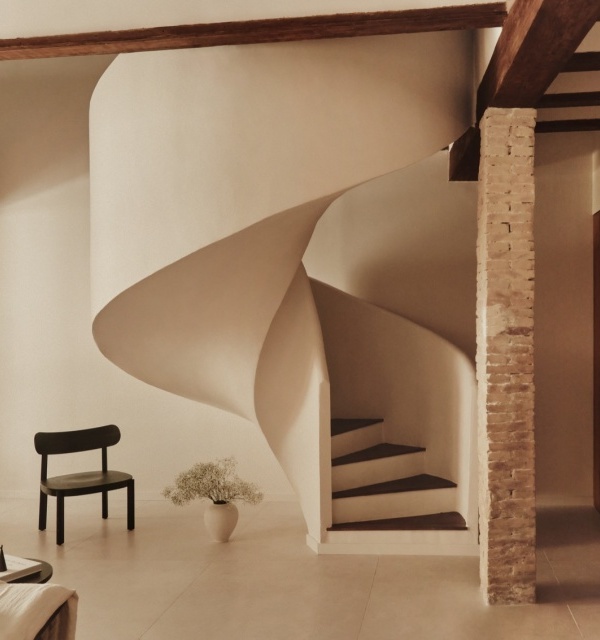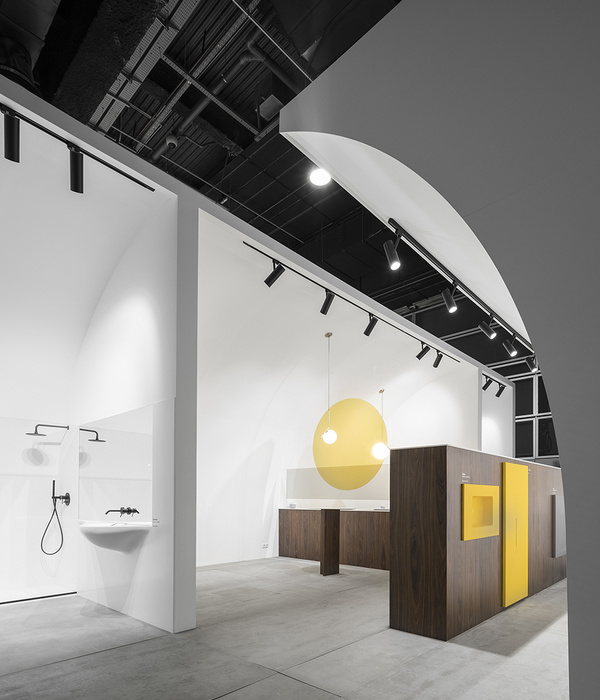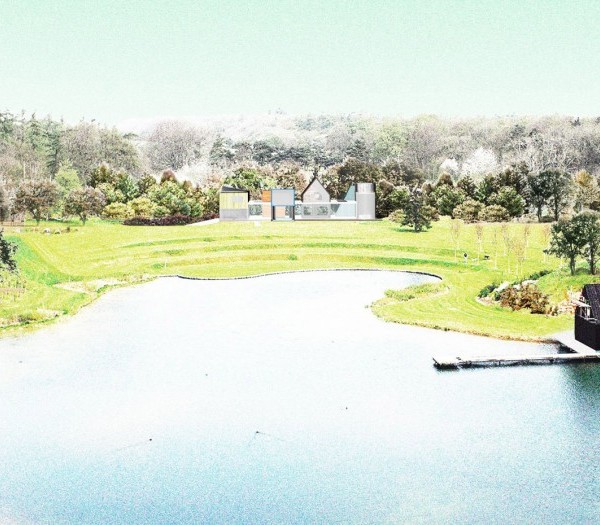The large terrain with privileged views allowed the residence to be developed on a single floor. Only the master bedroom swings over the slope toward the adjacent lake. The façade for the street is composed of low horizontal volumes, accommodated according to the shape of the terrain. The large side of the rooms block is lined with a cumaru muxarabi that filters the light while ensuring privacy.
The main access is through the social block, where the large space is organized by a wooden storage. The living space opens onto a large balcony which frankly connects with the kitchen. The more private TV room promotes the articulation between the social area and the dormitories, where a unique curupixá volume integrates wardrobes and bedroom doors, forming a corridor that also opens to the outside. The service areas and the caretaker's residence guarantee privacy by being situated next to the only adjacent neighbor.
The whole structure was designed using pillars and apparent metal beams. Exterior closures are made of aluminum and glass frames, as well as masonry and wood-covered sections. The use of materials in their natural state keeps the intention of ensuring low maintenance. With maximum use of natural light during the day, the lighting design is mainly composed of indirect lighting.
In a low environmental impact line, the residence has rainwater collection and reuse, integral energy production through photovoltaic panels, solar water heating and automation for lighting, thermal conditioning and irrigation. All furniture chosen was conceived by brazilian designers.
{{item.text_origin}}

